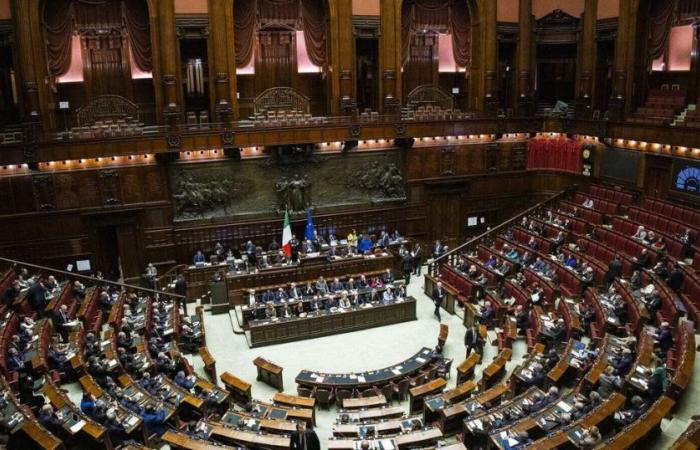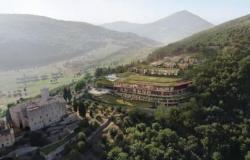AGI – The Senate’s first yes to the premiership. And 14 hours later the definitive green light from the Chamber to differentiated autonomy. The League rejoices for the green disc on its ‘banner’ while opposition arises. “Shame, a serious forcing, an unholy exchange consummated in favor of darkness”, is the refrain of the minority deputies. The center-left protests against the majority decision to speed up the process of the measure with a lengthy session (no agreement was reached on the timing among the group leaders) to protect ourselves – the reasoning in majority circles – from possible parliamentary ‘traffic jams’ due to other expiring decrees. Thus, after the night marathon, the vote of the Montecitorio assembly arrived just before eight this morning. A non-stop from dusk to dawn which saw a crowded Chamber last night and semi-deserted at breakfast time. As well as the refreshment stand stormed by parliamentarians during the brief night breaks in the session.
The sprint for autonomy arrived last afternoon, from the opening of the Montecitorio meeting with the request to reverse the order of business made by the League to immediately discuss the bill. The suspension of a couple of hours to allow opposition parliamentarians to join the demonstration in Piazza Santi Apostoli against the reforms certainly does not slow down the path to autonomy. In fact, once the work has resumed, the centre-right’s ‘outburst’ arrives: shortly before 11pm, at the request of Tommaso Foti (FdI), the group leaders’ meeting is called. And it is a clash between the parties.
The opposition arises
The Chamber votes for the river session with the majority determined not to give up even a minute to their rivals: it continues to the bitter end until the final vote. “They are splitting Italy under the cover of darkness”, Giuseppe Conte summarizes the criticisms of the opposition. The ‘monologue’ of the minority parties (during the voting on amendments and agendas) is interrupted only with the explanations of vote. “You kept us here for a scalp, a cynical barter. Change your name to ‘shreds of Italy’ or ‘brothers of half of Italy’ since you are splitting it, shame on you”, attacks Elly Schlein. “We caught you red-handed. Other than ‘mask and face’, you are just a mask, you lost your face a long time ago. One, no one and a hundred thousand… Good luck, cemetery”, Tommaso’s reply Foti group leader of the Brothers of Italy deputies.
Meanwhile, having received the green light from the Chamber, Roberto Calderoli, ‘father’ of the bill, smilingly shows the text of the measure in Transatlantico. “My legs are shaking with emotion,” he writes on social media. Also present in the Chamber, among the party benches, before the final vote, was the deputy secretary of the Northern League, Giancarlo Giorgetti. Group photo with regional flags for the Northern League deputies who thus celebrated the final green light for the text. The parliamentarians posed with Roberto Calderoli in the courtyard of Montecitorio showing the flags of Veneto, Lombardy, Piedmont, Romagna and Calabria.
The leader of the League, Matteo Salvini, also rejoices: “a historic day. A victory for all Italians: thanks to everyone”. The session ends with the M5s deputies singing the national anthem, waving the tricolors that many had around their necks. And there remain some parliamentarians dozing on the sofas of the Transatlantic.
What is differentiated autonomy and how does it work
Differentiated autonomy it is recognition by the Stateof theattribution of legislative autonomy to a Region on matters of concurrent competence and, in three cases, of matters of exclusive competence of the State. Along with the powers, the Regions can also retain the tax revenue, which would no longer be distributed on a national basis according to collective needs. The law just approved by the Chamber on ‘Provisions for the implementation of the differentiated autonomy of the regions with ordinary statute pursuant to article 116, third paragraph, of the Constitution’, signed by the minister Roberto Calderoli, offers the possibility of recognizing levels of autonomy to the Italian Regions with ordinary and special statute and to the Autonomous Province of Trento and Bolzano, and is a procedural law implementing the reform of Title V of the Constitution approved in 2001.
In 11 articles, the new law defines the legislative and administrative procedures for the application of the provisions of the Charter, regulating the procedures for agreements between the State and those Regions that decide to request differentiated autonomy in 23 matters. Before submitting the request, each individual Region must acquire opinions from Municipalities, Provinces and regional bodies in its territory. The subjects for which this request is possible are: health, education, sport, environment, energy, transport, culture and foreign trade. For 14 of these subjects the Lep, Essential Performance Levels, must be defined.
The State and Region requesting differentiated autonomy will have time 5 months from the Region’s request to reach an agreement. The agreements can last up to 10 years and then be renewed, and can also be interrupted before expiry by the State or Region with at least 12 months’ notice. The heart of the reform is precisely the Lep, the minimum service which must be guaranteed uniformly across the entire national territory. The determination of costs and standard needs takes place on the basis of a survey of the historical expenditure of the State in each Region in the last three years.
Within 24 months of the entry into force of the law approved today, the executive will have to pass one or more legislative decrees to determine the levels and amounts of the Lep. The transfer of functions from State to Region will be possible only after the determination of the Lep and within the limits of the resources made available in the budget law. A control room of the national government will have to carry out periodic reconnaissance of the regulatory framework in relation to each administrative function of the state and of the ordinary regions and identify subjects or areas of subjects relating to the Lep on civil and social rights which must be guaranteed in the same way throughout the National territory.
All the competent ministers are members, assisted by a technical secretariat at the Department of Regional Affairs and Autonomy of the Presidency of the Council. The government can replace bodies of Regions, metropolitan cities, Provinces and Municipalities when it verifies their non-compliance with international treaties, community regulations or finds a serious danger for public safety including the guarantee of civil and social rights and it is necessary to protect unity legal or economic one of the country.






